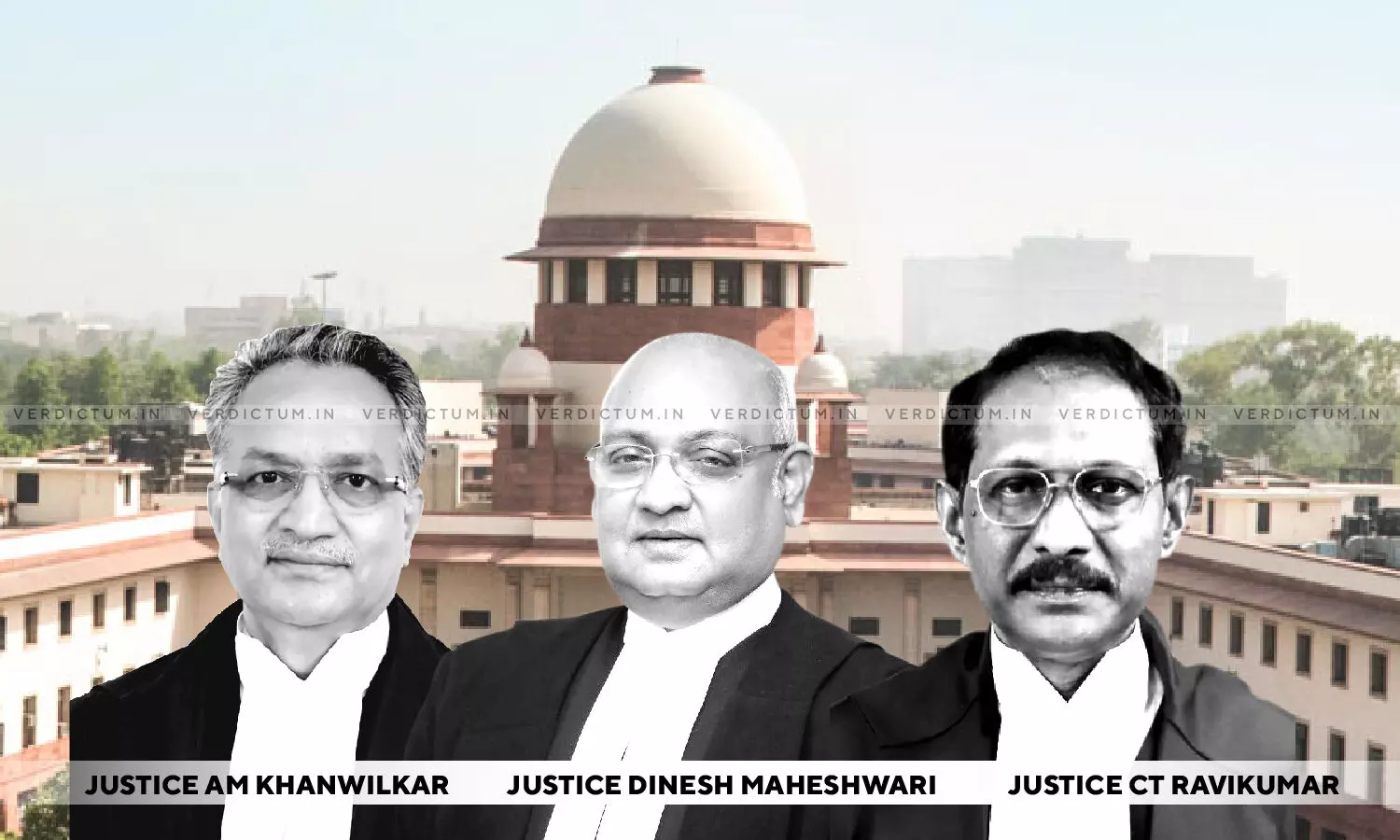
Money Laundering Promotes Drug Trafficking And Terrorism, Affects Sovereignty/Integrity Of Countries – Supreme Court
 |
|The Supreme Court on Wednesday rejected the challenge to the various provisions of the Prevention of Money Laundering Act, 2002.
The Bench of Justice AM Khanwilkar, Justice Dinesh Maheshwari and Justice CT Ravikumar while pronouncing its verdict observed that money laundering is a heinous crime which not only affects the social and economic fabric of the nation but also tends to promote other heinous offences, such as terrorism, offences related to NDPS Act.
Further, the Court also held, "Considering the purposes and objects of the legislation in the form of 2002 Act and the background in which it had been enacted owing to the commitment made to the international bodies and on their recommendations, it is plainly clear that it is a special legislation to deal with the subject of money laundering activities having transnational impact on the financial systems including sovereignty and integrity of the countries."
Additionally, the Bench while holding so, noted that to deal with such serious offences, stringent measures are provided in the PMLA 2002 for prevention of money laundering and combating menace of money-laundering including attachment and confiscation of proceeds of crime and to prosecute persons involved in the process or activity connected with the proceeds of crime.
"The offence of money-laundering has been regarded as an aggravated form of crime "world over". It is, therefore, a separate class of offence requiring effective and stringent measures to combat the menace of money laundering," the Court observed.
The Bench further also held the need to have a comprehensive legislation for prevention of money laundering was felt the world over owing to the 'serious threat' to the financial systems of the countries, including to their integrity and sovereignty –
"The international bodies have been discussing the menace of money laundering on regular basis for quite some time; and strongly recommended enactment of stringent legislation for prevention of money-laundering and combating with the menace thereof including to prosecute the offenders and for attachment and confiscation of the proceeds of crime having direct impact on the financial systems and sovereignty and integrity of the countries."
As a result, the Bench held the Parliament enacted the Prevention of Money Laundering Act, 2002 which in itself is a testimony of compelling necessity to have stringent regime (enactment) for prevention and control of the menace of money laundering.
"...notwithstanding the existing dispensation to deal with proceeds of crime, the Parliament enacted the Act as a result of international commitment to sternly deal with the menace of money laundering of proceeds of crime having transnational consequences and on the financial systems of the countries," the Court held.
The Bench also observed that every provision of 2002 Act will have to be given its due significance while keeping in mind the legislative intent for providing a special mechanism to deal with the scrouge of money-laundering recognized world over and with the need to deal with it sternly.
"Thus, it is well settled by the various decisions of this Court and policy of the State as also the view of international community that the offence of money-laundering is committed by an individual with a deliberate design with the motive to enhance his gains, disregarding the interests of nation and society as a whole and which by no stretch of imagination can be termed as offence of trivial nature," the Bench opined.
The Bench had heard a batch of petitions challenging different aspects of the Prevention of Money Laundering Act, 2002 (PMLA). The batch comprising of 242 petitions including those of Karti Chidambaram and Anil Deshmukh had raised questions on different aspects of the PMLA raising the issue of alleged violation of the Fundamental Rights granted by the Constitution.
Click here to read/download the Judgment